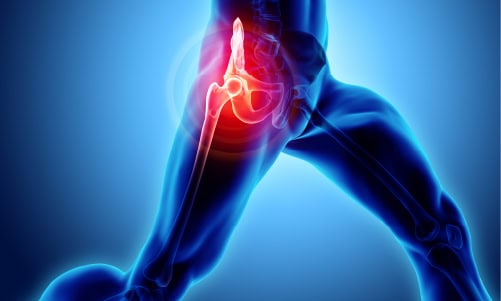Hip replacement surgery stands as a beacon of hope for those grappling with hip-related ailments. Let’s delve into the complexities of hip replacement surgery, addressing conditions like osteoarthritis, rheumatoid arthritis, hip fractures, and avascular necrosis. The highlights include the surgical process, its benefits, and the comprehensive care provided at the CK Birla Hospital.
If you're considering hip replacement surgery, reach out to us, or book a direct appointment with our orthopaedic surgeon. At the CK Birla Hospital, we are dedicated to ensuring that your hip replacement surgery is as safe, comfortable, and effective as possible. We're here to guide you every step of the way towards a successful recovery.

Delaying or improperly performed hip replacement surgery can result in several risks and complications:
Timely intervention is essential for minimising risks and maximising benefits.
Surgeons offer two main options for hip replacement:
The cost of a hip replacement surgery in Delhi varies as per the specific type advised by a healthcare provider, such as:
The cost can also vary widely depending on several factors, including the location, the extent of the procedure, the surgeon’s experience, and the hospital’s pricing structure.
To get an explicit estimate for the cost of hip replacement surgery at the CK Birla Hospital, contact the hospital directly. Additionally, you can consult with our board-certified orthopaedic surgeon to discuss your specific needs and receive a personalised quote for the procedure.
The decision to proceed depends on joint damage, quality of life impact, and overall health. Pre-operative preparations follow, including further evaluations and patient instructions.
Medical evaluation:
Medications:
Lifestyle modifications:
Physical preparation
Nutrition and weight
Logistics
Pain management
Physical activity
Weight-bearing
Incision care
Medications
Diet and nutrition
Follow-up appointments
Lifestyle modifications
Driving
Showering and bathing
Hospital stay
Pain management
Mobility and weight-bearing
Physical therapy
Wound care
Medication and blood thinners
Assistive devices and home modifications
Follow-up appointments
Gradual return to normal activities
Yes, hip replacement is a major surgical procedure involving the removal and replacement of the hip joint with an artificial one, typically done to relieve pain and improve mobility.
After hip replacement surgery, follow your surgeon’s instructions for rehabilitation, including physical therapy, pain management, and gradually increasing activity to regain strength and mobility while avoiding certain movements.
Hip replacement surgery typically takes about 1 to 2 hours. However, the actual duration can vary depending on individual factors and surgical complexity.